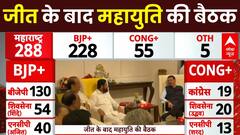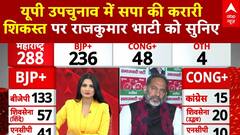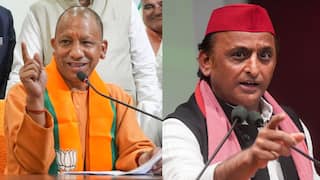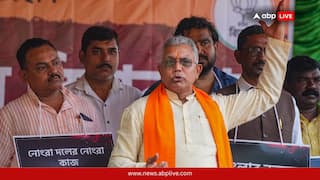(Source: ECI/ABP News/ABP Majha)
After Centre’s Decision To Repeal Farm Laws, SC-Appointed Committee Panel To Go Public On Tuesday
With PM Narendra Modi announcing the decision to repeal the three farm laws in the upcoming winter session, the SC-constituted committee will announce the fate of their report on Tuesday.

New Delhi: The Supreme Court-appointed committee on the three contentious agrarian laws held a meeting on Monday.
The committee members said they would hold a press conference on Tuesday to announce the fate of the report that they had submitted in March, news agency IANS reported.
Anil Ghanawat, the Shetkari Sanghatana leader from Maharashtra, who reached Delhi in the morning, held a meeting with another member of the panel, agriculture economist Ashok Gulati.
ALSO READ | Parliament Winter Session | All-Party Meeting Called On Nov 28, PM Modi May Attend: Reports
In January this year, while staying the three farm laws, the Supreme Court had appointed the three-member committee which includes Anil Ghanawat, Ashok Gulati, and PK Joshi.
The Committee had submitted its report in March after wide multi-stakeholder consultation. However, neither the apex court made use of any of its recommendations nor was the report made public.
In September, Anil Ghanawat wrote to the then Chief Justice of India, to release the report so that its recommendations can be used by the Union government for resolving the agitation of the farmers that had turned widespread.
Now with Prime Minister Narendra Modi announcing the decision to repeal the three farm laws in the upcoming winter session, the SC-constituted committee will announce the fate of their report on Tuesday, as per the IANS report.
Decision To Repeal Farm Laws “Unfortunate”: SC-Appointed Committee Member
Meanwhile, Anil Ghanwat, a member of the Supreme Court-appointed committee on farm laws, on Monday termed the decision of repealing the farm laws as “unfortunate” and said that the Indian economy will face a crisis if a law is made for guaranteeing minimum support price (MSP) for crops.
He expressed that concerns as protesting farmers continue to press for legislation on MSP.
“If there is going to be a law (on MSP), we (India) will face a crisis. With the law, if the (procurement) process goes down someday, no one will be able to buy the produce as procuring it at a price lower than the MSP will be illegal and they (traders) will be put in jails for it,” Anil Ghanwat told news agency ANI.
“It’s going to be a crisis because not only the traders will be harmed but also the stockists and everybody else related to it. Even the commodity market will be disturbed. It will be distorted,” he added.
Calling for Centre and the farmer leaders to think of some other way to boost farm incomes, he said: “We are not against MSP, but open-ended procurement is a problem. We require 41 lakh tonnes of grains for buffer stock but procured 110 lakh tonnes. If MSP law is made, all farmers will demand MSP for their crops and no one will be in a position to earn anything out of that”.
Talking about the repeal of the agrarian laws further opined: “Farmers were demanding reforms for the last 40 years. This is not a good step. The existing system of agriculture is not enough... Even if the new laws which were introduced were not very perfect, there were some flaws which needed to be corrected. I think this government had the will to reform agriculture as the earlier governments didn’t have the political will”.
Farmers’ agitation is set to complete one year on November 26.
Hundreds of farmers, mainly from Punjab, Haryana, and Uttar Pradesh, are encamped at Delhi borders since November last year demanding that the government repeal the three agrarian laws -- Farmers’ Produce Trade and Commerce (Promotion and Facilitation) Act, 2020; Farmers’ (Empowerment and Protection) Agreement on Price Assurance and Farm Services Act, 2020; and the Essential Commodities (Amendment) Act, 2020.
Apart from the repeal of farm laws, a legal guarantee on Minimum Support Price (MSP) has been one of the major demands of the farmers.
(With Inputs From Agencies)
Top Headlines
Trending News







































